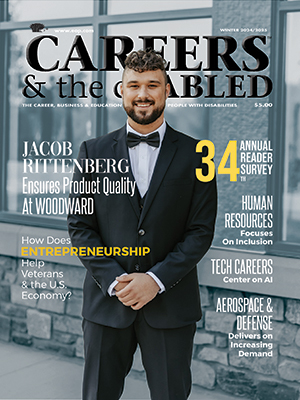

According to the World Health Organization (WHO), 1 in 2 young people are at risk of hearing loss due to unsafe listening practices. To help make listening safe:
Overview
According to the World Health organization (WHO), a person who is not able to hear as well as someone with normal hearing – hearing thresholds of 20 dB or better in both ears – is said to have hearing loss. Hearing loss may be mild, moderate, moderately severe, severe or profound. It can affect one ear or both ears and leads to difficulty in hearing conversational speech or loud sounds. Disabling hearing loss refers to hearing loss greater than 35 decibels (dB) in the better hearing ear. People can encounter factors across their life span that may lead to hearing loss including, but not limited to, genetic factors, infections, certain medical conditions or medications, nutritional deficiencies or age-related hearing loss.
College Support
The Disability Services Office's purpose is to provide testing and classroom accommodations and referrals for on-campus and off-campus resources that will ensure students with disabilities the opportunity to receive a college education on a level playing field with their peers.
Students with hearing loss and disabilities can request accommodations by sending in proof of your disability via medical documentation or IEP forms. To see your options for submitting forms, please visit the Accommodations and Disability Services webpage.
Below is a table for the types of accommodation a student with hearing loss may discuss with their healthcare provider about requesting to assist with pursuing their education, compiled from the Center for Parent Information & Resources.
| Service | Format | Example(s) |
|---|---|---|
| Note Taking Assistance | On-site | Student in a class will take notes to help with student who may require focused visual attention to read captions or speech reading of instructor |
| Additional time for assignments/tests | On-site/Off-campus | Scheduling with the Testing Center, space will be reserved for you to take your test in a location with minimal distractions; assignments may have altered due dates/times |
| Scribes for test | On-site | Scheduling with the Testing Center, a staff member will be assigned to help record dictated responses |
|
Captioned Media
|
On-site/Off-campus | Faculty ensuring accurate captions for pre-recorded videos |
| Environmental Adaptations | On-site/Off-campus | Lighting changes for classrooms, preferred seating near instructor, all lecture content available with full-text captions |
| Class Breaks | On-site | Instructor lead breaks to clarify information and prevent overload of visual information |
Community Resources
Louisiana Commission for the Deaf
The Louisiana Commission for the Deaf (LCD) serves as the principal agency of the state for engaging, empowering, and enriching the lives and opportunities of Louisiana d/Deaf, DeafBlind, and hard of hearing individuals. The organization provides services and programs to support communication access, advocate for the needs and rights of people who are d/Deaf, and establishing standards for the state's American Sign Language Interpreter workforce with training and professional development.
Louisiana Assistive Technology Access Network
The Louisiana Assistive Technology Access Network (LATAN) is a nonprofit organization with the mission to help people of all ages with functional limitations or disabilities to gain greater independence at work, home, or school through the use of assistive technology. Programs include assistive technology lending, demonstrations of assistive technology, and a vendor list to acquire assistive technology.
National Resources
National Center on Accessible Educational Materials
The National Center on Accessible Educational Materials for Learning at CAST provided technical assistance, coaching, and resources to increase the availability and use of accessible educational materials and technologies for learners with disabilities across the lifespan.
National Association of the Deaf
The National Association of the Deaf (NAD) is the nation’s premier civil rights organization of, by and for deaf and hard of hearing individuals in the United States of America. The organization's advocacy extends in the areas of early intervention, education, employment, health care, technology, telecommunications, youth leadership, and more – improving the lives of millions of deaf and hard of hearing Americans.
 Journal of Postsecondary Education and Disability (Electronic Resource)
Journal of Postsecondary Education and Disability (Electronic Resource)
 Careers & the disABLED Magazine (Print) Available at Fletcher Library
Careers & the disABLED Magazine (Print) Available at Fletcher Library
 This website is licensed under a Creative Commons Attribution 4.0 International License unless otherwise noted.
This website is licensed under a Creative Commons Attribution 4.0 International License unless otherwise noted.

